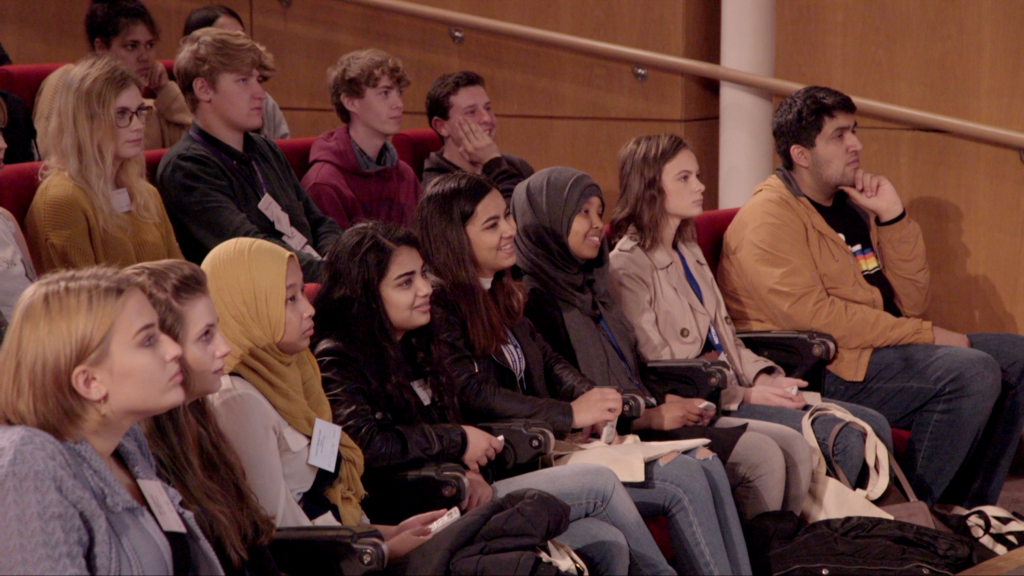
Young researchers share their findings at IRIS Student Conferences
Young people from secondary schools and colleges across the UK will be travelling to venues in Bradford, Edinburgh and London over the next fortnight to share their scientific research with peers and the wider secondary community at the IRIS Student Conferences. The Institute for Research in Schools (IRIS) aims to change the culture in UK education to make authentic research part of every young person’s experience and more than 1,500 students have taken part in their projects this year. The conferences begin today at the Bradford Science and Media Museum.
Some of the research highlights from the IRIS Student Conferences 2022 are:
Bradford 14 June 2022 – Bradford Science and Media Museum
-
- Big Data – Covid -19: At Forge Valley School in Sheffield, students conducted original research comparing the impacts of coronavirus in the North and South of the UK.
-
- Cosmic Mining: Students from Forge Valley School, St Wilfrid’s Catholic High School and Sixth Form in Featherstone, West Yorkshire and Woodkirk Academy in Wakefiled, West Yorkshire have been analysing data from the Spitzer Space Telescope to assist the work of the James Webb Telescope.
-
- Original Research – Students from Otley Prince Henry’s Grammar School Specialist Language College in Otley, West Yorkshire, created their own cosmic ray detector as part of HiSPARC, an astrophysics project where young researchers uncover more about cosmic rays, mysterious and rare energetic particles.
-
- Motor Neuron Disease research: Students at Tapton School in Sheffield, in conjunction with the University of Sheffield, have conducted cutting-edge research on the causes of Motor Neuron Disease, looking to see if yeast could be used to study the biological processes of the disorder.
Edinburgh 16 June 2022 – University of Edinburgh
-
-
- Earth Observation programme: Students at Bathgate Academy have studied various environmental issues across the globe, including deforestation in Finland and Sweden, volcanic eruptions in Papua New Guinea, and microplastics in the ocean.
-
London 23 June 2022 – Congress Centre
-
-
- Big Data: ATLAS: Students from around the country have been exploring open-source proton-proton collision data from the Large Hadron Collider in Geneva. The IRIS team and Professor of Particle Physics Alan Barr from the University of Oxford are delighted to see that a small cohort from the Godolphin and Latymer School were able to locate the Higgs Boson using Python coding. The young people were part of a pilot project, developed by IRIS in conjunction with the University of Oxford and the Rutherford Appleton Laboratory, empowering students to explore their own questions in particle physics by teaching them to analyse ATLAS data.
-
-
-
- Big Data: COVID-19: Students analysed data from the global COVID database (available John Hopkins University) to understand the impact of coronavirus on society, particularly the relationship between the number of people vaccinated and the new daily deaths due to COVID-19.
-
-
-
- Earth Observation programme: Students at the Godolphin and Latymer School will present their findings of a project aimed at understanding the causal relationship between COVID-19 lockdowns and reduced levels of pollution in the borough of Hammersmith and Fulham.
-
-
-
- Treezilla programme: Students at Ada Lovelace Church of England High School have conducted research on air quality around the school, with a particular focus on children who suffer from Asthma.
-
About the Institute for Research in Schools (IRIS):
IRIS aims to change the culture in UK education so that authentic research and innovation is part of every young person’s experience. We do this by; creating opportunities for students to participate in cutting edge STEM research and collaborate with leading universities and institutions while still in school; evidencing the impact of students carrying out research while still in school; facilitating a research culture by illustrating and demonstrating best practice in STEM research and innovation in schools.
As a charity, everything we do is driven by our moral purpose; to capture talent and break down barriers that impact underrepresented young people in STEM.
Website: https://www.researchinschools.org
Twitter: https://twitter.com/ResearchInSch